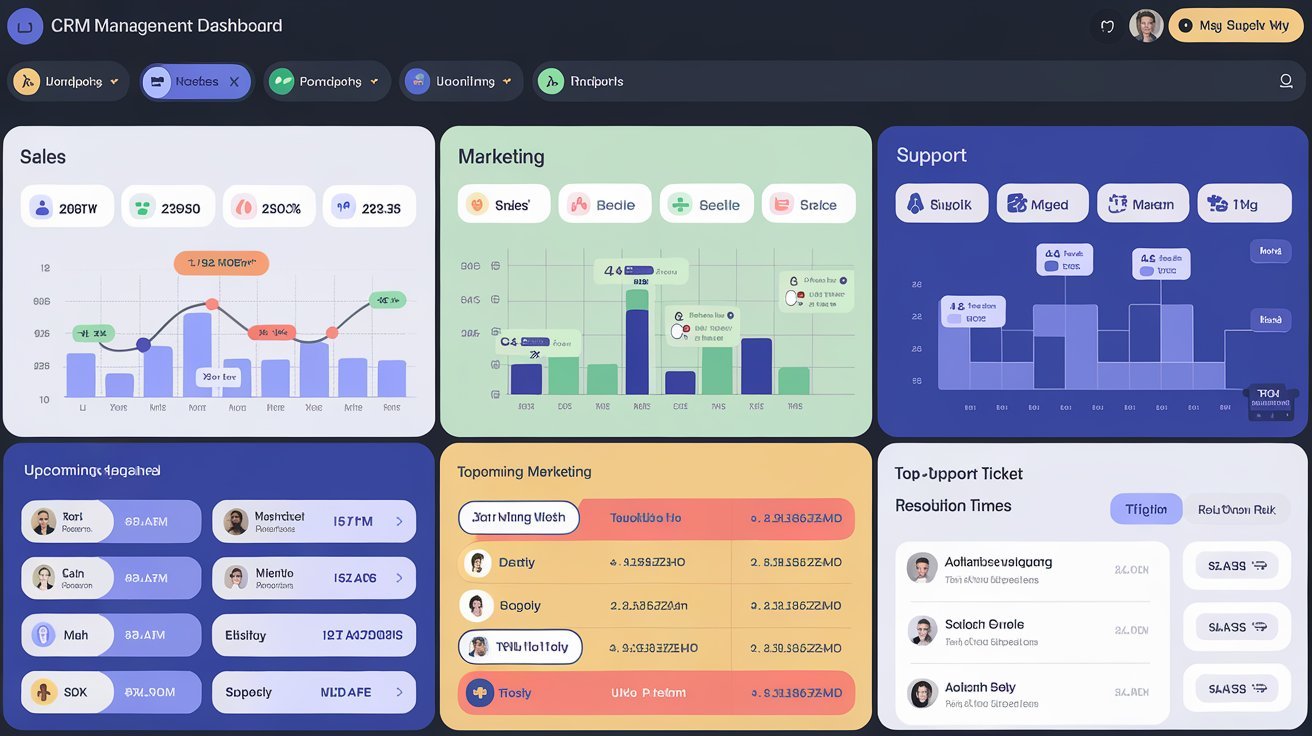What is CRM Management?
CRM management means customer relationship management and describes the way companies interact with their customers using CRM software. It consists of organizing, automating and synchronizing sales, marketing, customer service and also includes technical support. Aiming to enhance business relations, customer retention, and sales increasing.
- Benefits of CRM Management
- Improved Customer Relationships:
- Gives you the one source of all customer information for your team to consume easily.
- Personalized communication with customers in order to enhance their satisfaction and loyalty.
- Enhanced Sales and Marketing Efficiency:
- Leads management automation helps sales teams to save time on deal closing.
- Optimizes marketing campaigns so that they receive exposure to the correct viewers at the right moment
- Better Data Management:
- One-off storage of customer information to monitor: Keep track of your history in sales
- Predicate analytics, giving businesses deeper data on which to base their decisions
- Increased Productivity:
- Saves time for workers automate swivel chair process.
- Connects with tools and systems, enabling a seamless workflow.
- Improved Customer Retention:
- Traces all activities and page views for every customer, allowing proactive outreach.
- Identify customers on the brink of leaving and build retention strategies.
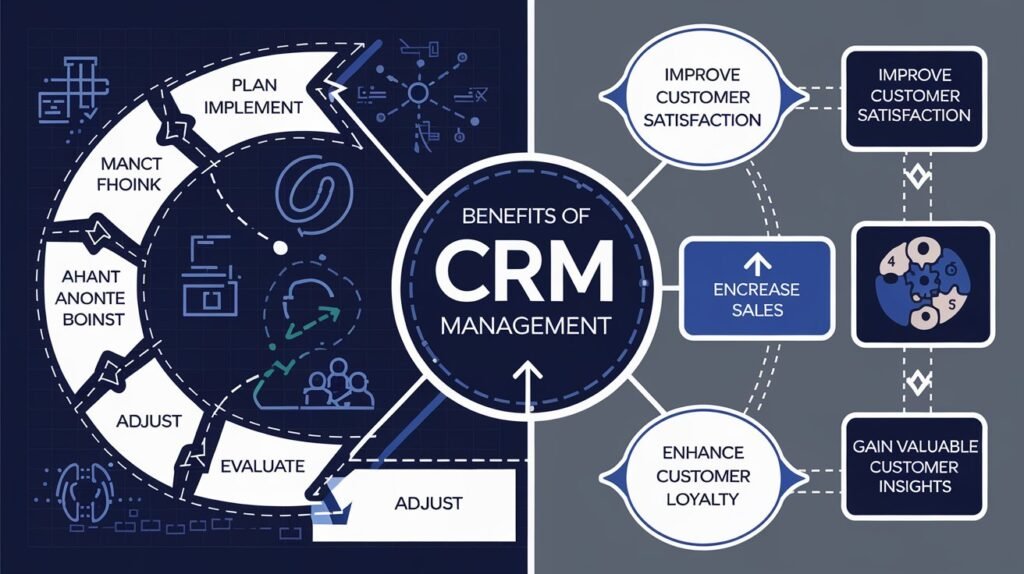
- Key Features of a Good CRM System
Contact Management: – Storing the customer data ategorisation
Lead Management: Tools to help track and manage leads.
Sales Automation: Tasks follow-up emails and data input are automated
Customer Service: – Tools for monitoring customer queries and addressing their support tickets
Marketing Automation: Functionality that makes it easier to develop and deploy email campaigns and other marketing initiatives.
Analysis and Reporting: Helps understand Customer behaviour, Sales trend.
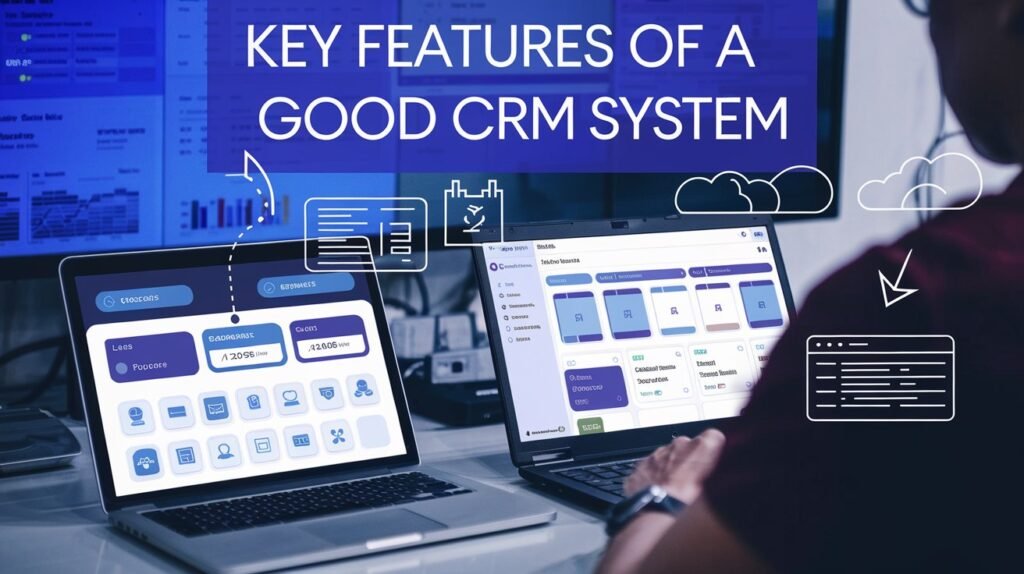
- Best Practices for CRM Management
- CRM: Pick a CRM created for the size of your business now that can grow with you.
- If you feel this is not the case, train your team : It is important that every single user of CRM software should be well trained and familiar with use full functionalities.
- Update Data on a Regular Basis: Ensure that your data is updated regularly in order to keep it as effective as possible in sales process.
- Automate as Much as You Can: Use the automation functionalities to minimize manual work and make your processes more efficient.
Measure Performance: Use the analytics tools to track performance metrics and adjust strategies as needed.
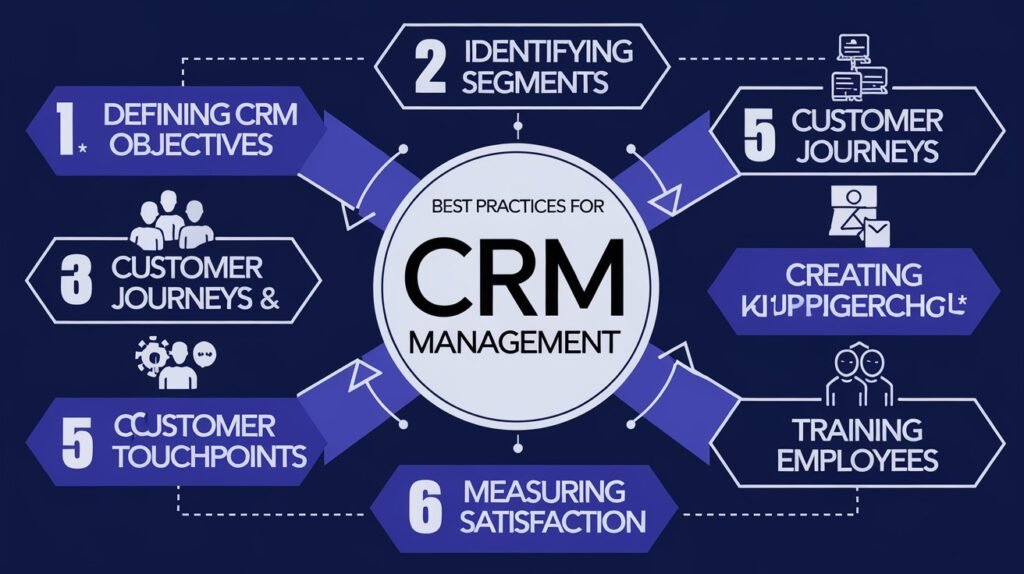
- Challenges in CRM Management
- User Adoption: Getting your team to consistently use the CRM system can be a challenge.
- Data Quality: Poor data entry can lead to inaccurate information, reducing the CRM’s effectiveness.
- Integration Issues: Ensuring that the CRM integrates smoothly with other business tools can be complex.
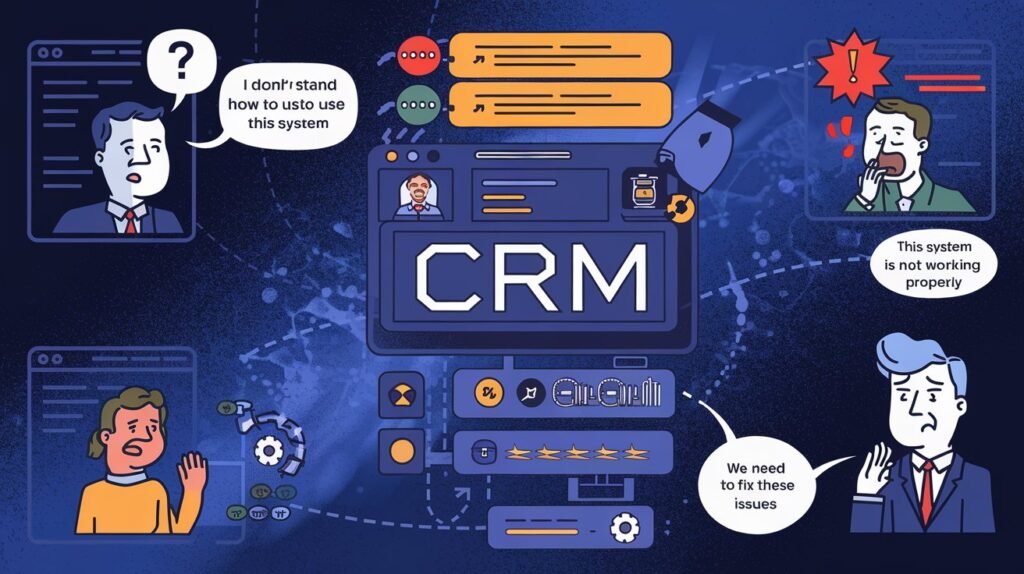
In the current market of intense competitive, CRM (Customer Relationship Management) has transcended from just a buzzword to an essential technique for enterprises to maintain and expand their customer base. CRM Efficient Management: Overview of CRM and Software to Manage it Managing interactions with current and potential customers is a key function for most companies. ≡ Menu Home Popular Get… View Post It is a way to empower and uplevel an organization with tangible ways of being customer-centric leading them to processes, results, improved service so that it naturally hots sales growth.
All businesses that seek to enhance customer relationships, increase sales and improve the internal operations may need a management of CRM. The process of selecting the right CRM system can be daunting but with effective strategies and by adopting best practices, businesses can get the most out of their CRM software to achieve continued growth and success.
FAQ’s
- What is CRM management?
CRM management is the process of overseeing and optimizing customer interactions and data through CRM software to improve business relationships and drive sales.
- Why is CRM management important for my business?
CRM management helps businesses streamline processes, improve customer service, and increase sales by centralizing customer information and automating tasks.
- What are the key features to look for in a CRM system?
Look for contact management, lead management, sales automation, customer service tools, marketing automation, and robust analytics and reporting features.
- How can CRM management improve customer retention?
By tracking customer interactions and feedback, CRM management enables proactive engagement and helps identify at-risk customers, allowing businesses to create retention strategies.
- What challenges might I face with CRM management?
Common challenges include user adoption, maintaining data quality, and ensuring smooth integration with other business tools.
- How do I ensure successful CRM management?
Choose the right CRM system for your needs, train your team, regularly update data, automate tasks where possible, and measure performance to continuously improve.

